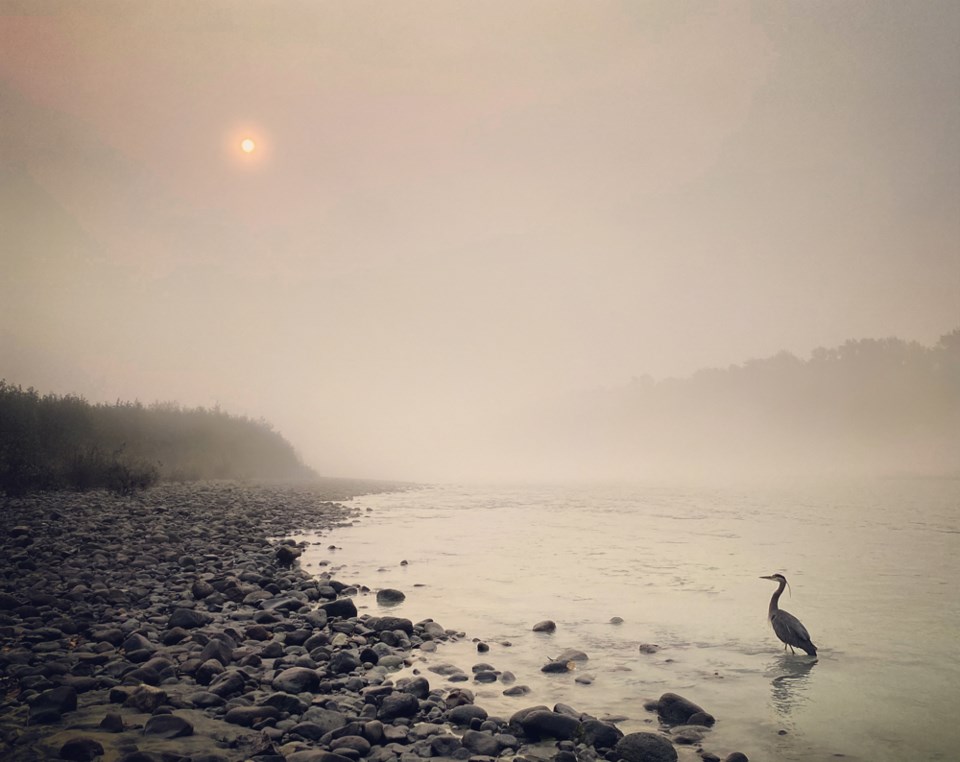Are you still going for your run, regardless of the smoke-filled air? Or are you staying in and starting to get cabin fever?
A local researcher wants to hear from you, either way.
Luisa Giles, an exercise and environmental health researcher at the University of the Fraser Valley, is leading a team of researchers who are conducting an online survey to understand if wildfire smoke impacts physical activity and mental well-being.
Wildfire smoke from fires in the U.S. has blanketed the Lower Mainland and Sea to Sky since Sept. 11, leading to Ministry of Environment and Climate Change Strategy, Smoky Skies Bulletins — or alerts — that say people should stop or reduce activity levels if breathing becomes uncomfortable or the smoke causes individuals to feel unwell.
"We don't really know how wildfire smoke impacts people's behaviour — whether they change their physical activity or not," said Giles, who lives in Valleycliffe.
"Maybe the research will show that nobody changes their behaviour and if that is the case, maybe the health messaging needs better linking to people. Or if everybody all of a sudden does no exercise and then that impacts things like mental health — because exercise and mental health are quite connected — then maybe we can support people with the air quality advisory statements; put in little links to indoor exercise routines they could do, or put in links for mindful meditation to help with their mental health."
The results may show that the uber-athletic culture of Squamish leads to results unique to our region.
"We will control in the statistics for where people live," she said. "Maybe we will see different attitudes in different parts of the province."
The survey is open to those 19 years or older whose local air quality has been impacted by wildfire smoke.
The online questionnaire will ask about physical activity, mental well-being, and demographic variables.
It takes approximately 10 minutes to complete.
The survey will only be available as long as the smoke lasts.
Participants will then be asked to fill out a follow-up questionnaire about a month later.
Giles said she hopes results from the data analysis will be available in about six months.
"Hopefully, we can support people better in times of wildfire smoke," she said of what she hopes comes out of the survey data.
Her recommendation for healthy locals is to exercise indoors, next to a HEPA filter, if possible.
"If you decide to go outside and exercise, consider wearing a mask because some research suggests that some double, tightly-woven cotton, as long as it fits well, might help a little bit," she said. "And think about possibly reducing the intensity of exercise because we know that when people are exposed to air pollution, their resting heart rate and their heart rate during exercise can increase, so you just might have less of a capacity to exercise."
To complete the online survey go to: https://www.surveymonkey.ca/r/WildfiresandPhysicalActivity.
For more information about wildfire smoke and health go to the BC Centre for Disease Control site: http://www.bccdc.ca/health-info/prevention-public-health/wildfire-smoke.



